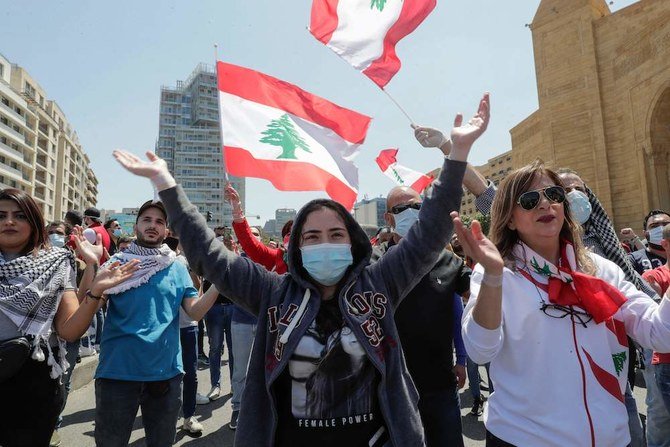
- ARAB NEWS
- 15 Jul 2025

Najia Houssari
BEIRUT: The Lebanese are expecting the lifting of tough restrictions that were imposed in March following the coronavirus outbreak, with popular markets outside the capital reopening and people wearing masks while outside.
There were four new COVID-19 cases recorded by the Ministry of Health on Saturday, raising the total number to 733 since March 26. The death toll stands at 25.
Fears about the economy appear to have superseded fears about the pandemic, amid layoffs, business closures and the government turning to the IMF to resolve the country’s financial crisis.
One market trader in the city of Saida said the living situation had deteriorated terrifyingly. “Prices of goods have doubled, people are reluctant to buy, and their purchases are limited to essentials, although we are in the month of Ramadan and are heading to Eid,” he told Arab News.
Popular tourist attractions and businesses have shuttered, while cafe and bar owners in Beirut can be seen emptying their premises.
The Lebanese pound continues its struggle against the US dollar, and there remain differences between official exchange rates and those on the black market. On Saturday, the dollar’s selling rate reached LBP3,800, while its buying rate was LBP4,000.
President Michel Aoun told Russia’s Sputnik News Agency on Saturday that he understood people’s desire for “quick and concrete” changes, but said that handling the repercussions of the past 30 years would not happen overnight.
He also expressed concern about some political forces exploiting anti-corruption street protests. “We will not allow the security situation to deteriorate, while preserving the freedom to demonstrate and the freedom of expression.”
An economic plan was approved by the government a few days ago. Its request for IMF assistance has drawn a mixed response, most notably from the Association of Banks in Lebanon which rejected the plan and talked about its “dangers.” It demanded that those who prepared the plan be held accountable.
“The process of local restructuring as mentioned in the plan would lead to further undermining confidence in Lebanon locally and internationally, as it bears trends that flow into legalizing of the state of lawlessness,” it warned.
Finance Minister Ghazi Wazni said the association had the right to express its opinion about the plan, which was subject to discussion and amendments in the interest of Lebanon.
“The plan is one of the main points for transforming the economy from rentier to productive, and the government will work to support the productive sector, including industry and agriculture,” he added. “We are in a serious and real crisis, and things are heading toward holding an international support group conference in exchange for implementing the reforms.”
Development expert Dr. Nasser Yassin said the government’s plan did not take social issues into account. “The positive part of the plan is that it diagnosed the problem well for the first time and determined the losses, but the social part was not clear except for relying on austerity measures, and this suits the IMF, but this means that the austerity policy will target poor groups, army compensation, teachers, and social benefits, and thus will target the already weak social protection systems, which are already suffering from structural disorder and weakness,” he told Arab News.
Lebanon was at a sensitive stage, he said, as there was “economic meltdown” and people were taking to the streets. “It was supposed to be a draft that the civil society can give their opinion on. There is now reliance on parliament to discuss it and make amendments to it.”
The director of the Arab NGO Network for Development, Ziad Abdel Samad, said that the government's plan was based on assumptions. “It is more like credentials submitted to the IMF and Cedar (a conference for international donors and investors to help Lebanon’s economy), although the main problem is political and lack of confidence in the authority that wants to implement it,” he told Arab News. “Can the government, for example, impose a ban on evading customs duties at border crossings? Will the government be able to put scanners on the crossings and prevent smuggling through illegal crossings? There is a system based on quotas that will eliminate any project that can be implemented.”
The plan talked about a safety net, he added, but this was the work of international organizations, not the work of the government. “What is required of the government is to provide a comprehensive protection system for people. And when the plan talks about reducing consumption to reduce import, we cannot ask people alone to sacrifice without providing them with a social, educational and health protection system.”